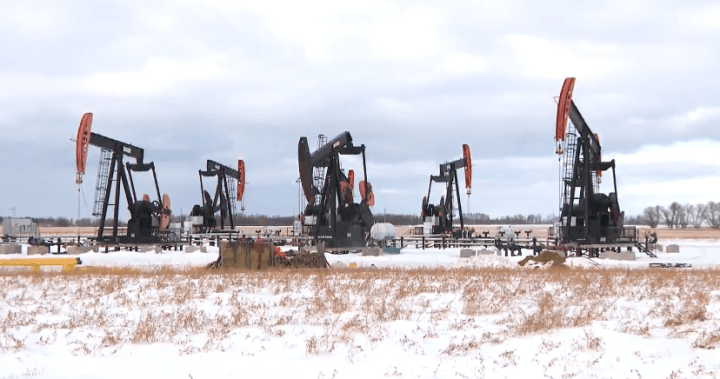The impending implementation of reciprocal tariffs between Canada and the United States has sparked concern and uncertainty across various sectors, yet Canada’s energy industry has found a sliver of relief amidst the trade tensions. While a broad range of Canadian products will face a 25% tariff, energy products have been granted a reprieve with a lower 10% levy. Industry experts interpret this distinction as an acknowledgement of the crucial role Alberta’s oil and gas plays in the energy security of both nations. This nuanced approach suggests an understanding of the interconnectedness of the North American energy market and the potential for widespread disruption if energy trade were severely curtailed.
While the lower tariff on energy products offers some solace, the broader trade dispute remains a cause for concern. Scott Crockatt, vice-president of communications for the Business Council of Alberta, characterized the situation as a “no-win” scenario, highlighting the potential for widespread job losses in Canada. While acknowledging the significance of the differentiated tariff for energy, Crockatt emphasized the overall negative impact of trade wars and the cautious approach businesses are adopting in response to the escalating tensions. This cautiousness translates into delayed investments and projects, ultimately hindering economic growth and job creation.
The uncertainty surrounding the trade dispute’s long-term implications is prompting companies to re-evaluate their investment strategies. Richard Masson, a faculty member at the University of Calgary’s School of Public Policy, anticipates that the unpredictable trade environment will lead to project cancellations and a slowdown in investment. This pullback stems from the difficulty of forecasting future costs and revenues in a volatile market. Masson predicts that businesses will delay major decisions until the trade landscape becomes clearer, potentially hindering long-term growth prospects. While the immediate impact of the tariffs might be muted, the long-term consequences for investment and economic expansion remain a significant concern.
While the energy sector has been partially shielded from the brunt of the tariffs, the potential ramifications for consumers on both sides of the border remain unclear. Masson anticipates higher gasoline and diesel prices in the U.S. as a result of the 10% tariff on Canadian energy products. However, he doesn’t foresee a significant drop in demand due to the relatively modest price increase. This suggests that the impact on Canadian oil exports might be limited in the short term. However, the long-term consequences for consumer prices and the overall health of the energy market warrant careful monitoring.
Alberta Premier Danielle Smith expressed disappointment with the U.S. tariffs but emphasized her commitment to opposing any measures that restrict energy exports or further tax Canadian goods. Smith attributes the lower tariff rate on energy, at least in part, to her government’s advocacy efforts, highlighting the significant economic contributions of Canadian crude to the U.S. refining industry. She proposes a strategic response involving targeted tariffs on U.S. goods that can be readily sourced from Canadian or non-U.S. suppliers, aiming to minimize the impact on Canadian consumers while maximizing the pressure on the U.S. economy. This targeted approach aims to balance the need for retaliatory measures with the desire to protect Canadian consumers from price hikes.
The energy sector is urging against restrictive measures on energy trade or the imposition of export taxes, emphasizing the interconnectedness of the North American energy market. Prime Minister Justin Trudeau, while acknowledging the need for a measured response to the U.S. tariffs, emphasized the importance of a unified approach involving regional, provincial, and business stakeholders. This collaborative approach aims to ensure that the burden of the trade dispute is shared equitably across different sectors and regions of the country. Trudeau’s cautious stance reflects the complexity of the situation and the need to carefully consider the potential consequences of any retaliatory measures.

